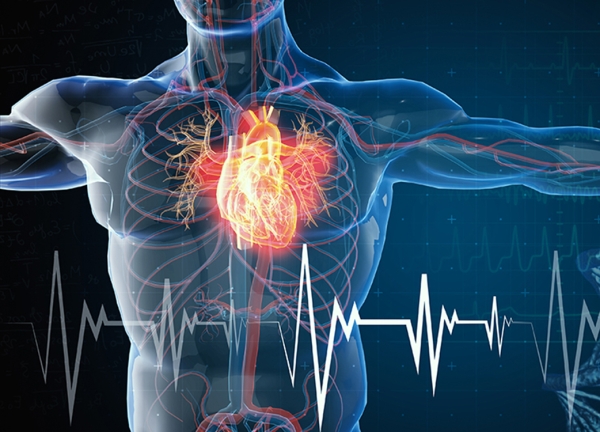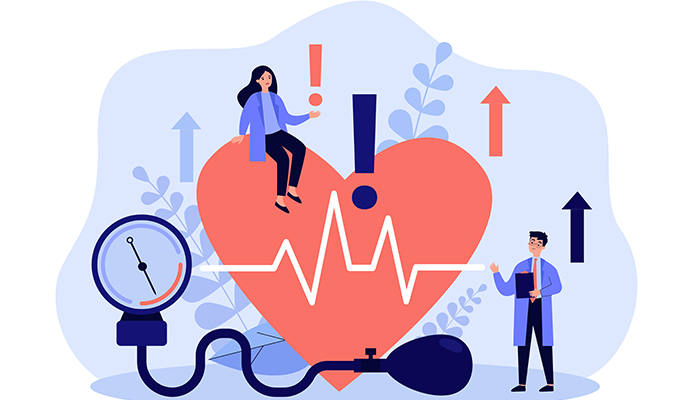How Dr Garcia, MD supports long-term heart wellness with expert care
How Dr Garcia, MD supports long-term heart wellness with expert care
Blog Article
Understanding the Importance of Cardiology in Modern Healthcare Services
Cardiology plays a vital duty in modern-day medical care, specifically as heart problem proceeds to be the leading source of death worldwide. Advancements in diagnostics and treatment have actually transformed client care, enabling earlier interventions and enhanced end results. The change in the direction of precautionary cardiology equips individuals to handle their wellness proactively. As modern technology remains to progress, the integration of innovative remedies might better redefine cardiology's influence on public health and wellness, triggering a closer exam of arising patterns and their implications.
The Prevalence of Heart Problem and Its Effect on Public Health
Heart condition stays the leading reason of fatality globally, its influence expands much beyond private patients to influence public health and wellness systems and economic situations. The high occurrence of heart problem puts a substantial pressure on health care sources, requiring raised funding for rehab, therapy, and prevention programs. Public health and wellness campaigns must attend to risk aspects such as excessive weight, smoking, and inactive way of livings, which contribute significantly to the rising occurrence of heart conditions.Moreover, the economic problem linked with cardiovascular disease is enormous, incorporating not just direct clinical prices but also indirect costs connected to shed performance and early death. Areas face difficulties in taking care of these prices, frequently bring about disparities in medical care gain access to and results. As the populace ages and lifestyle-related threats remain to rise, the urgency for effective cardiology interventions becomes critical. Attending to heart illness is not only a matter of individual health yet additionally an essential public health priority.
Advancements in Cardiac Diagnostics and Imaging Techniques
Current improvements in cardiac diagnostics and imaging techniques have revolutionized the area of cardiology, boosting the capability to monitor and detect heart problem. Strategies such as heart MRI, CT angiography, and echocardiography have become significantly advanced, offering detailed photos of cardiac structures and features. These modalities enable for the very early identification of problems like coronary artery illness, heart failure, and valvular disorders.Moreover, innovations in non-invasive diagnostics, such as wearable modern technology and remote tracking devices, have actually empowered individuals and healthcare providers. These tools promote real-time tracking of heart rhythms and various other vital signs, causing timely interventions. Additionally, fabricated intelligence is being incorporated into imaging analysis, boosting accuracy and performance in diagnosis.
Technologies in Treatment Choices for Heart Conditions
Recent innovations in cardiology have caused substantial advancements in therapy options for heart problems. These consist of advanced surgical strategies that boost step-by-step outcomes and emerging drugs that offer new opportunities for treatment. As the area progresses, these innovations play an important function in boosting patient care and results.
Advanced Surgical Techniques
Technologies in medical techniques have changed the landscape of cardiology, supplying brand-new hope for patients with heart disease. Minimally invasive treatments, such as catheter-based interventions, have significantly minimized healing times and health center keeps. Techniques like robotic-assisted surgery enhance accuracy, permitting cosmetic surgeons to navigate complicated anatomical structures with higher precision. Advancements in imaging technology facilitate real-time visualization throughout treatments, enhancing results. Transcatheter aortic valve replacement (TAVR) exhibits an innovation in dealing with aortic stenosis, enabling valve substitute without open-heart surgical procedure. Furthermore, hybrid techniques that combine catheter-based and surgical approaches supply tailored services for various cardiac concerns. These innovative surgical techniques not just improve client safety however additionally broaden treatment alternatives, emphasizing the vital role of innovation in modern-day cardiology methods.
Emerging Therapies and drugs
As the landscape of cardiology remains to evolve, arising therapies and drugs play a critical role in improving treatment choices for heart disease. Technologies such as novel anticoagulants and progressed lipid-lowering agents have actually transformed the monitoring of cardiovascular conditions, significantly lowering client morbidity and death. Additionally, the advancement of gene therapies and regenerative medication provides encouraging opportunities for dealing with conditions formerly regarded irreversible. Professional trials are continuously disclosing the efficacy of these treatments, pressing the boundaries of standard therapies. The combination of electronic wellness technologies helps with individualized medication, allowing for tailored treatment plans based on genetic and way of life variables. Jointly, these advancements highlight the vibrant nature of cardiology, enhancing person end results and redefining criteria of treatment in modern-day healthcare.
The Duty of Preventive Cardiology in Patient Care
Preventive cardiology plays an important function in client care by concentrating on the identification of danger variables that add to heart condition. Via way of living alteration approaches and very early discovery methods, medical care companies can successfully minimize the incidence of cardiovascular events - Cardiology Jupiter. This positive method not only improves patient end results yet also advertises lasting health and wellness
Danger Factor Identification
While cardio illness remain a leading source of morbidity and mortality worldwide, reliable danger element recognition acts as a foundation of preventive cardiology. Identifying risk variables such as hypertension, diabetes mellitus, hyperlipidemia, and household history is essential for very early intervention. Health care specialists utilize various evaluating methods to examine these elements, enabling for tailored safety nets. In addition, comprehending a person's lifestyle selections, such as smoking and physical lack of exercise, additionally educates risk analyses. This comprehensive analysis enables medical professionals to create customized care plans targeted at mitigating risks. By prioritizing threat factor identification, healthcare systems can boost individual end results and reduce the general problem of cardio diseases, eventually adding to improved public health methods and source appropriation.
Lifestyle Adjustment Methods
A plethora of studies highlights the important duty of lifestyle modification techniques in decreasing cardiovascular illness danger. These techniques include dietary modifications, boosted exercise, smoking cigarettes cessation, and weight monitoring. By taking on a heart-healthy diet regimen abundant in fruits, veggies, entire see this page grains, and lean healthy proteins, people can decrease cholesterol degrees and blood stress. Routine exercise reinforces the heart and boosts total cardio health and wellness. Furthermore, stopping smoking significantly decreases the danger of heart illness and improves recovery rates for those with status quo. Weight administration even more contributes to cardio health and wellness by alleviating other risk factors such as diabetes and high blood pressure. Applying these lifestyle alters not just promotes individual health yet likewise acts as a keystone of preventative cardiology in person care.
Early Discovery Methods
Lifestyle alterations significantly contribute to reducing cardio illness risks, however they are most effective when coupled with early discovery methods. Preventative cardiology highlights the significance of recognizing potential heart problems prior to they intensify right into severe conditions. Techniques such as blood stress monitoring, cholesterol testing, and progressed imaging innovations like echocardiograms play crucial duties in evaluating cardio health and wellness. Biomarkers and hereditary testing likewise boost the precision of very early discovery, permitting customized preventative methods. Normal cardiac danger analyses empower medical care service providers to step in proactively, possibly stopping cardiovascular disease and strokes (Cardiology care). By incorporating these very early detection techniques right into regular treatment, patients can benefit from prompt way of living treatments and targeted treatments, eventually improving and boosting end results lifestyle
Integrating Technology Into Cardiology Practices
As improvements in modern technology remain to reshape different fields, the combination of ingenious devices and systems right into cardiology techniques has actually come to be essential for enhancing individual treatment and results. Telemedicine systems allow cardiologists to keep an eye on people from another location, boosting accessibility to care while reducing the burden on healthcare facilities. Wearable tools, such as smartwatches, make it possible for continual heart price surveillance, signaling both people and medical professionals to prospective issues in real-time. Additionally, expert system (AI) is being used to evaluate large amounts of heart information, helping in early diagnosis and tailored therapy strategies. Advanced imaging methods, including 3D echocardiography, enhance visualization of heart frameworks, causing a lot more accurate interventions. Digital wellness documents (EHRs) enhance client information monitoring, making sure that cardiologists have immediate accessibility to vital information. With each other, go these technological innovations are changing cardiology, promoting aggressive administration and improved health and wellness outcomes for patients with cardio conditions.
The Significance of Person Education and Involvement
Person education and involvement play a pivotal function in the monitoring of cardiovascular health and wellness. By equipping clients with expertise concerning their problems, treatment alternatives, and lifestyle modifications, medical care service providers equip people to take an active duty in their care. This proactive technique can bring about improved adherence to prescribed medicines, nutritional adjustments, and workout programs, inevitably reducing the risk of complications.Engagement likewise promotes a solid patient-provider connection, urging open interaction and trust. When clients really feel notified and entailed, they are most likely to voice problems and ask inquiries, which can bring about far better clinical end results. Additionally, educational resources, such as workshops or digital platforms, can enhance understanding and advertise self-management strategies. Overall, focusing on patient education and engagement is essential for enhancing cardio wellness, boosting lifestyle, and minimizing health care prices related to cardio illness.
Future Patterns in Cardiology and Their Potential Impact

Regularly Asked Inquiries
What Way Of Life Changes Can Reduce Cardiovascular Disease Danger?
The current inquiry addresses way of living modifications that can considerably minimize cardiovascular disease threat. Dr Garcia. Taking on a balanced diet regimen, participating in regular physical task, preserving a healthy and balanced weight, taking care of tension, and preventing cigarette can significantly boost cardiovascular health and wellness
How Can I Recognize Very Early Signs of Heart Issues?
Identifying early indications of heart troubles involves surveillance signs such as breast pain, shortness of breath, exhaustion, and uneven heartbeat. Timely recognition of these signs can trigger essential clinical analysis and intervention for much better results.
What Are the Differences Between Cardiologists and Cardiac Surgeons?
The distinctions between cardiologists and heart surgeons depend on their functions; cardiologists largely identify and take care of heart conditions via non-invasive methods, while heart specialists execute surgeries to fix structural heart concerns. Each plays a vital, unique function.

How Commonly Should I Get My Heart Health And Wellness Checked?
The regularity of heart medical examination differs based on individual risk aspects. Typically, adults should undergo assessments every one to 2 years, while those with existing conditions might click to find out more need more frequent evaluations as encouraged by medical care experts.
What Role Does Genes Play in Heart Condition Threat?
Genetics greatly influences heart problem threat, with domestic patterns showing inherited problems. Specific genetics can incline individuals to high blood pressure, cholesterol problems, and various other cardiovascular issues, highlighting the relevance of genetic testing in examining heart health. Heart disease continues to be the leading reason of death globally, its influence expands far beyond individual clients to impact public wellness systems and economies. Public health and wellness efforts should attend to danger variables such as excessive weight, smoking, and less active way of lives, which contribute substantially to the increasing occurrence of heart conditions.Moreover, the financial worry connected with heart illness is tremendous, encompassing not only direct medical expenses yet additionally indirect expenses related to lost performance and early mortality. Preventive cardiology plays a vital duty in person treatment by focusing on the identification of risk elements that contribute to heart illness. Artificial intelligence (AI) and device discovering are improving diagnostics and individual surveillance, making it possible for very early discovery of heart conditions. The distinctions in between cardiologists and cardiac specialists exist in their duties; cardiologists largely detect and take care of heart problems with non-invasive techniques, while cardiac surgeons perform medical treatments to remedy architectural heart problems.
Report this page